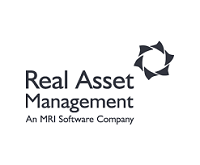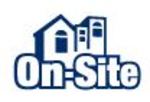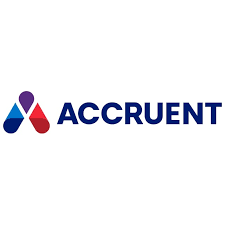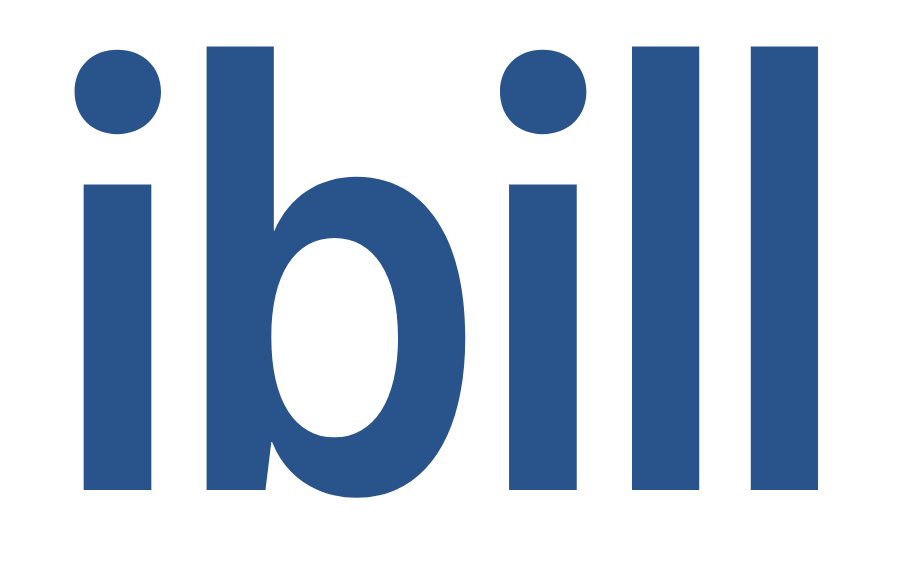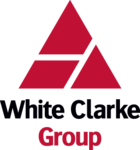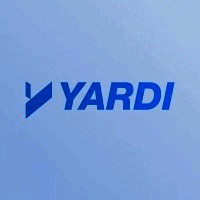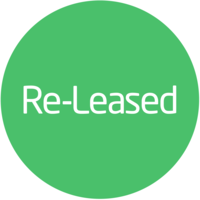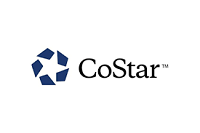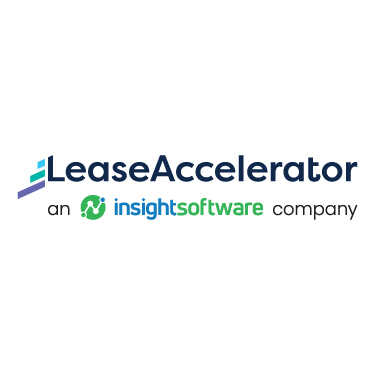Yes, lease management software may be accessed from many devices and platforms. It is designed to be user-friendly and interoperable with a variety of operating systems, including Windows, Mac, and Linux. This means you may use it from any computer, laptop, smartphone, or tablet as long as you have internet access. This provides quick access and flexibility, allowing you to manage your leases on the go from any device.
List of 20 Best Lease Management Software
RAM Lease Accounting solution for efficient lease management. Our software simplifies the process of preparing lease reports for balance sheets while fully complying with FAS 13, ASC 842, and IFRS 16 regulations. Say farewell to complicated calculati...Read More RAM Lease Accounting
Innago, the premier rental property management software for landlords and property managers of small-to-mid-sized properties. With a free trial that doesnt require a credit card, Innago simplifies and streamlines your rental management processes. Exp...Read More Innago
On-Site is a property management software that streamlines all aspects of managing properties. From resident screening and lease administration to maintenance tracking, On-Site reduces administrative tasks and boosts productivity for property manager...Read More On-Site
Nakisa Lease Administration is a solution designed to streamline lease accounting and management. The cloud-based platform ensures compliance and data protection, while also simplifying consolidation of lease data and automating financial processes...Read More Nakisa Lease Administration
Accruent Lucernex is a Lease Management software designed for SMEs, Enterprises, and Agencies. It offers a wide range of features, including Accounting Management, Document Management, Lease Origination, and Portfolio Management, in a single user-fri...Read More Accruent Lucernex
DoorLoop is a property management software that maximizes your potential. Our top-rated platform offers exceptional features, comprehensive support, and seamless migration to elevate your property business. With DoorLoop, youll have everything you ne...Read More DoorLoop
iBill solution for automating and simplifying recurring billing and collections. Say goodbye to manual bill creation and gain valuable insights with aging trends for better collection efforts. Enjoy the convenience of customizable bill formats and de...Read More iBill - Recurring Billing
Trullion is a SaaS solution that uses cutting-edge AI technology to simplify accounting processes for CFOs, Accountants, and Auditors. With its seamless integration of structured and unstructured accounting data, Trullion eliminates the hassle of man...Read More Trullion
Hemlane is a rental management software that simplifies the entire rental process. It allows landlords to easily find and manage tenants, with features like listing on multiple websites, lead tracking, automated late fees, document storage, maintenan...Read More Hemlane
CALMS - software solution that combines culture, automation, lean principles, measurement, and sharing in one platform. With its comprehensive features, CALMS enables seamless team collaboration, streamlines workflow processes, boosts efficiency, and...Read More CALMS
Nomos One solution for all your lease accounting needs. This cutting-edge cloud-based software is designed to seamlessly comply with IFRS 16 regulations and simplify the calculation of PVFMLP. Say goodbye to tedious manual calculations and put your t...Read More Nomos One
Yardi Voyager is a software that simplifies real estate management for landlords, investors, and property managers. This comprehensive platform offers powerful tools for leasing, property accounting, and maintenance, allowing you to streamline operat...Read More Yardi Voyager
Manhattan IWMS - a software designed to streamline facility management, maximize space utilization, and optimize real estate portfolios. With its intuitive interface and advanced data analysis capabilities, businesses can make informed decisions, boo...Read More Manhattan IWMS
Re-Leased is a cloud-based solution designed for efficient management of commercial properties. It offers a user-friendly dashboard to streamline all tasks, making management hassle-free. With access to real-time data analytics, such as profit and lo...Read More Re-Leased
ResMan is a property management solution that transforms the management of multifamily and affordable housing communities. Its advanced capabilities simplify marketing, compliance, and performance tracking, making it the top choice for industry leade...Read More ResMan
SBS Financing Platform - a cloud-based solution designed to meet the unique needs of specialized finance lenders. Our platform can operate independently or integrate seamlessly with existing business systems through API. With SBS Financing Platform,...Read More SBS Financing Platform
Quarem is a lease management software, designed to simplify and enhance property management processes. Our integrated platform allows for easy management of leases, projects, reports and assets, all in one convenient location. Request a demo on our w...Read More Quarem
CoStar is a cloud-based solution for optimized lease accounting processes. Our software guarantees accuracy and compliance with CPA testing and FASB and IASB guidelines, giving businesses of all sizes peace of mind. With superior data security, CoSta...Read More CoStar
Visual Lease is the top choice for businesses looking for a complete lease accounting solution. With seamless integration to more than 50 GL/ERP platforms and a proven track record spanning over 20 years, Visual Lease is the trusted choice for organi...Read More Visual Lease
LeaseAccelerator, now a part of insightsoftware, offers a comprehensive solution for managing both equipment and real estate leases. This advanced software streamlines processes, automates tasks, and maintains compliance, leading to improved cash flo...Read More LeaseAccelerator
Learn More About Lease Management Software
- What Is Lease Management Software?
- What Are The Recent Trends In Lease Management Software?
- Benefits Of Using Lease Management Software
- Important Factors To Consider While Purchasing Lease Management Software?
- What Are The Key Features To Look For In Lease Management Software?
- Why Do Businesses Need Lease Management Software?
- How Much Time Is Required To Implement Lease Management Software?
- What Is The Level Of Customization Available In Lease Management Software?
- Which Industries Can Benefit The Most From Lease Management Software?
- Conclusion
What Is Lease Management Software?
Lease management software is a specialist solution that streamlines and automates the entire lease management process. It is a comprehensive system that allows businesses to efficiently track and manage all parts of their leasing arrangements, from initial discussions and contract preparation to continuing monitoring and financial reporting. The software is intended for real estate companies, property managers, and leasing agents who work with many properties and lease contracts.
It helps to centralize all lease-related data and gives you real-time access to important information including rent payments, lease terms, and lease expiration dates. One of the most significant advantages of leasing management software is its ability to automate repetitive operations and reduce the need for manual documentation.
With capabilities like document management, automated rent collection, and lease renewals, the software saves time and reduces the chance of human error. Another benefit of lease management software is its robust reporting capabilities. It delivers thorough statistics on occupancy rates, lease expirations, and rental income, giving important information for strategic decision-making.
In addition, the platform includes sophisticated collaboration features that allow landlords, tenants, and other stakeholders to communicate seamlessly. It also ensures legal and regulatory compliance, lowering the danger of hefty penalties. When choosing leasing management software, it is critical to consider scalability, customization options, and interaction with existing systems. AppFolio, Buildium, and Yardi Breeze are some of the most popular market options.
What Are The Recent Trends In Lease Management Software?
Recent advances in lease management software are constantly influencing and improving how firms manage their leasing operations.
When comparing leasing management software choices, consider the following important trends:
1. Cloud-Based Solutions: One of the most significant trends in leasing management software is the transition to cloud-based solutions. This enables quick access to the program from any place or device, making it suitable for remote and mobile work environments. Cloud-based solutions also provide increased security and data backup, preserving the confidentiality of critical leasing information.
2. Automation And Artificial Intelligence: Lease management software is increasingly adding automation and artificial intelligence capabilities to streamline and improve process efficiency. This includes features like automatic lease renewal reminders, lease details that auto-populate, and more. AI may also assist firms generate insights and analytics, providing them with useful data for decision-making.
3. Integration With Other Software: Another development in leasing management software is the integration of other business-critical software, such as accounting and finance, project management, and document management. This enables smooth data interchange and improves efficiency by eliminating the need for manual data entry.
4. Mobile-Friendly Interfaces: With the rise of remote work and on-the-go business operations, lease management software with mobile-friendly interfaces has become increasingly important. This enables consumers to easily access and manage lease information from any mobile device, giving them greater flexibility and convenience.
5. Improved User Experience: Lease management software is becoming more user-friendly and intuitive, with an emphasis on delivering a smooth and efficient user experience. This includes features like drag-and-drop tools, customisable dashboards, and simple navigation, which help customers learn and use the product.
Benefits Of Using Lease Management Software
Lease management software is a useful tool for businesses and organizations of all kinds who want to successfully manage their lease agreements. This type of software provides numerous benefits, making it an excellent investment for any firm with various leases to handle.
Let's take a closer look at the key advantages of using leasing management software.
1. Centralized Lease Management: One of the primary benefits of adopting lease management software is the ability to concentrate all lease data in one location. This eliminates the need for manual record-keeping while streamlining the management process. Businesses can save time and reduce the risk of human mistake by making all leasing information conveniently available in a consolidated database.
2. Automated Renewals And Reminders: Lease management software frequently includes features like automatic renewals and reminders. This reduces the possibility of missed rent payments or lease expirations, allowing businesses to stay current on their lease arrangements. Businesses can avoid costly penalties and ensure that their leases run smoothly by setting up automated reminders.
3. Improved Organization And Efficiency: Businesses can improve their organization and efficiency by employing a digital leasing management software. All lease data can be easily accessible, categorized, and monitored, allowing you to quickly discover crucial information like lease terms, rent amounts, and important dates. This saves firms time and resources, allowing them to focus on more vital duties.
4. Better Financial Management: Lease management software frequently includes financial management tools that enable organizations to conveniently track their lease-related expenses. This includes rent, security deposits, and any other associated fees. Businesses that have access to extensive financial data can make informed judgments and plan their budgets more accurately.
5. Efficient Communication: Effective communication is essential for successful lease management. Lease management software may improve communication among landlords, tenants, and property managers, ensuring that everyone is on the same page. This can assist to avoid misunderstandings and disputes, saving time and resources for all parties.
Important Factors To Consider While Purchasing Lease Management Software?
When looking to buy lease management software, there are various things to consider in order to make an informed decision.
Here are some crucial factors to consider while purchasing leasing management software.
1. User-Friendly Interface: One of the first things to consider when selecting leasing management software is the user interface. The program should be simple and intuitive to use, with a well-designed dashboard that lets customers to rapidly access and manage their leases.
2. Features And Functionality: Before making a purchase, consider the software's features and functionality. Some important features to look for are lease tracking, document management, lease renewal notifications, financial reports, and lease negotiating tools. Ensure that the software includes all of the functionality you require.
3. Customization Options: Because each business's leasing needs are unique, it is critical to select software that allows for customization. This enables you to modify the program to your exact requirements, making it more productive for your organization.
4. Compatibility: Before selecting lease management software, make sure it is compatible with your current technology and processes. This will save you time and money in the long run by preventing conflicts and integration concerns.
5. Data Security: Because sensitive leasing information is saved on the software, it is critical that the software has strong security mechanisms in place. Look for features like data encryption and secure login to keep your data safe from unauthorized access.
6. Scalability: As your company grows, your lease needs are likely to expand as well. As a result, it is critical to select software that is scalable and can meet your future needs without requiring costly adjustments or upgrades.
7. Customer Support: When selecting leasing management software, examine the level of customer support given by the provider. This is necessary for debugging any problems that may emerge and ensuring that your software runs smoothly.
8. Integration Capabilities: Your leasing management software should be compatible with other company programs and third-party solutions. This will streamline your lease processes and prevent any duplication of effort.
9. Pricing And Flexibility: Finally, think about how much the program costs and how flexible it is. Choose software that offers a variety of pricing plans and payment alternatives to meet your budget and allows you to upgrade or downgrade as your company's needs change.
What Are The Key Features To Look For In Lease Management Software?
Lease management software is an invaluable resource for businesses and organizations of all kinds since it streamlines the process of handling leases, contracts, and other relevant papers. However, with so many options on the market, it might be difficult to find the appropriate one.
To make an informed decision, here are the essential characteristics to look for in lease management software:
1. Centralized Lease Database: A reliable lease management software should include a centralized database that allows you to store and organize all of your lease information in one location. This will make it easier to access and track your leases, lowering the likelihood of missing critical deadlines or information.
2. Comprehensive Monitoring And Reporting: The program should provide monitoring and reporting features to keep you up to date on crucial lease details like renewal dates, payment schedules, and contracts. This function allows you to stay on top of your leasing agreements while avoiding any legal and financial problems.
3. Automated Reminders: Lease management software can help you stay organized and on top of crucial dates. To prevent missing deadlines and fines, look for software that sends out automated reminders about forthcoming lease renewals, payments, and other important dates.
4. Customizable Lease Templates: Each firm has its own lease agreements and contracts, and effective software should allow you to generate customized lease templates to meet your individual needs. This saves time and effort when drafting new leases from scratch, and ensures that your lease agreements are accurate and consistent.
5. Document Management: Proper document management is essential for lease management software. It should allow you to upload and save a variety of lease-related papers, including contracts, insurance certificates, and other supporting paperwork, all in one location.
6. Integration Capabilities: Look for software that connects effortlessly with your existing systems and applications, such as accounting, CRM, or property management platforms. This simplifies and streamlines data transport and exchange.
7. User-Friendly Interface: Lease management software need a user-friendly interface, just like any other program does. Look for a platform that is simple to use, has a clean style, and provides configurable dashboards to meet your needs.
8. Security Features: Lease management software handles sensitive data, thus it is critical that it has great security features like data encryption, user authentication, and regular data backups to protect your information from cyber threats.
9. Scalability: As your firm expands, so will your leasing portfolio. Choose software that can meet your future requirements and scale up as your company grows, avoiding the need for regular software updates.
10. Customer Assistance: Finally, think about the amount of customer assistance provided by the leasing management software company. Look for a provider that gives prompt and quick assistance with any technical issues or questions you may have.
By taking these crucial aspects into account, you can make an informed decision on the best lease management software for your business. Remember to conduct thorough research, read reviews, and request demos before making a purchase to ensure that you select the program that best meets your requirements.
Why Do Businesses Need Lease Management Software?
Leasing is a common way for firms to obtain equipment, vehicles, and even office space without making a significant initial investment. However, administering these leases may be a complicated and time-consuming process. Here is where lease management software comes into play. First and foremost, lease management software assists organizations in streamlining and automating their lease management procedures.
This eliminates the need for manual paperwork and lowers the likelihood of human error. Businesses can simply track and monitor their leases, stay on top of payments and renewals, and prevent costly penalties or lease violations because all of their data is stored in a single centralized system. Lease management software not only simplifies administrative work, but also provides organizations with vital insights and statistics.
Businesses may make more informed decisions and optimize their leasing strategy by gathering and evaluating data on lease terms, payments, and expenses. This can result in significant cost reductions over time. Another advantage of leasing management software is increased compliance and risk management. Lease templates and audit trails allow firms to ensure that all leases comply with regulatory standards and company policies.
This decreases the likelihood of noncompliance and related legal consequences. Furthermore, leasing management software provides real-time visibility into all existing and future agreements. This enables organizations to better plan their budgets, anticipate future spending, and make strategic decisions. It also helps to prevent equipment or space shortages, which can disrupt operations and reduce revenue.
How Much Time Is Required To Implement Lease Management Software?
The implementation time for lease management software can vary depending on a number of factors, including the size of your firm, the complexity of your lease portfolio, and the specific features and customisation necessary. On average, completely implementing leasing management software might take anything from a few weeks to a few months.
It is vital to note that the implementation process is divided into several stages, including data migration, system configuration, user training, and testing, all of which can take a significant amount of time and resources. To guarantee a seamless and successful implementation, adequate time must be set aside and all necessary parties must be involved. Some lease management software companies offer expedited implementation services for an additional fee, which can drastically shorten the implementation period.
Before committing to an accelerated deployment timeframe, you should carefully assess your organization's and the software provider's readiness. Furthermore, it is recommended to have a clear implementation strategy in place, with specific dates and milestones, to continuously monitor progress and keep all stakeholders informed and engaged throughout. Overall, while the time it takes to implement leasing management software varies, it is critical to emphasize a complete and well-planned implementation process to ensure long-term success and maximum ROI.
What Is The Level Of Customization Available In Lease Management Software?
When it comes to lease management, each organization has unique demands and expectations. That is why it is critical to select lease management software that provides a high level of customisation. But what exactly does "customization" entail in this context? In general, customization in leasing management software refers to the flexibility to modify the software to your individual business requirements. This involves tailoring the interface, procedures, and features to your company's processes and needs. Some lease management software may include some customization, such as the ability to select from pre-defined templates or add custom fields to forms. However, more comprehensive and robust systems often provide a higher level of flexibility, allowing you to completely configure workflows, reports, and other features. So, what are the essential features that can be adjusted in lease management software?
Listed below are some of the most prevalent areas:
1. User Interface: This refers to the layout, colors, and branding of the software. Customizing the user interface can help your team find the product easier to use and navigate.
2. Workflows: Workflows are the steps and processes involved in lease administration, including lease formation, rent payment, and lease renewal. The degree of customisation in workflows varies widely depending on the software, but in general, more powerful solutions will allow you to develop unique workflows that are consistent with your company's operations.
3. Reports And Dashboards: Lease management software should include strong reporting tools that allow you to track and analyze lease-related data. This may include customisable reports and dashboards, which allow you to view and analyze the data that is most important to your business.
4. Functions And Integrations: Some leasing management software may provide a set of basic functions, but others allow for greater flexibility in terms of which features and integrations are included. This can be useful for firms with unique requirements or those require specific integrations with other software.
Which Industries Can Benefit The Most From Lease Management Software?
Lease management software is a useful tool that may help a variety of companies. This program is intended to simplify and automate the process of managing leases, from recording and arranging leasing agreements to creating reports and accepting payments. Lease management software can assist firms enhance their productivity, accuracy, and overall lease management. The real estate industry stands to benefit the most from lease management software.
Real estate companies often manage a huge number of properties and leases, which may become overwhelming and time-consuming. leasing management software may centralize all leasing information, making it more accessible and lowering the possibility of errors. It can also help with lease renewal and payment tracking, ensuring that no critical dates or payments are overlooked. The retail industry can also profit from lease management software.
Retail enterprises sometimes have many store locations with separate leasing agreements for each. Managing and managing these leases can be difficult, especially as the organization grows. leasing management software can assist retail businesses centralize all leasing information, making it easier to monitor and manage. It can also help firms budget and forecast their lease expenses.
The industrial business can also profit significantly from lease management software. Manufacturers frequently use long-term leases for equipment and machinery, and keeping track of these leases is critical to their operations. Manufacturers can use lease management software to keep track of critical dates and clauses in their leasing agreements. It can also provide real-time visibility into lease-related costs, allowing firms to make more educated decisions about lease terms and renewals.
Additionally, lease management software can benefit the healthcare industry. Healthcare facilities frequently have a complex network of leases spanning medical equipment to office space. Healthcare facilities can use lease management software to efficiently handle these leases while also ensuring regulatory compliance. This program can also provide significant insights into lease-related expenses, assisting with budgeting and forecasting for future leasing agreements.
Conclusion
To summarize, lease management software can be a useful tool for firms seeking to manage their leases efficiently and effectively. Lease management software, which includes features like lease tracking, payment management, and notifications, can save firms time and resources while also assuring lease agreement compliance. Before making a decision, properly research and evaluate your company's needs, budget, and the features provided by various software options.
Consider the software provider's scalability, usability, and customer support to ensure a seamless implementation and use. It is also critical to include important stakeholders, such as your finance and legal teams, in the decision-making process to ensure that all standards are met. Businesses that use the correct lease management software can streamline their lease management process, decrease errors and hazards, and, as a result, increase profits. We hope this buyer's guide has provided you with useful information and enabled you to make an informed decision for your company.
Lease Management Software FAQ's
Can Lease Management Software Be Accessed Across Multiple Devices And Platforms?
Is Lease Management Software Future-Proof And Adaptable To Emerging Technologies Like AI, Blockchain Or IoT?
Lease management software is designed to be future-proof and adaptable to upcoming technologies such as artificial intelligence, blockchain, and the Internet of Things. With the ever-changing nature of technology, lease management software companies must always stay current and include new tools and features into their systems.
This ensures that the software remains relevant and successful in assisting organizations with lease management, even as new technologies are developed. Furthermore, many leasing management software companies feature integration capabilities, allowing customers to effortlessly incorporate new technology into their existing systems.
Is There A Free Trial Offered To Assess Lease Management Software Before Committing?
Many lease management software vendors provide a free trial period for potential customers to evaluate the product before making a purchase. This allows users to test out the software's features and functionalities to see if it satisfies their business requirements. Free trials normally last 14 to 30 days and require signing up with a valid email address. Take advantage of these free trials to make an informed judgment before purchasing leasing management software.
Does Lease Management Software Offer Data Security Features And Meet Regulatory Compliance Standards?
Yes, most lease management software includes data security features like encryption, backups, and user access controls to safeguard the security and confidentiality of your lease information. Furthermore, many leasing management software platforms comply with regulatory standards such as GDPR and HIPAA, ensuring that your data is secure and satisfies legal criteria. This enables firms to maintain compliance and avoid potential legal complications.
Can Lease Management Software Integrate Seamlessly With Existing Tools And Platforms?
Yes, Lease Management Software is designed to work smoothly with other tools and platforms, like as accounting software, CRM systems, and document management systems. This enables for a smooth transition and guarantees that all critical data is synced and accessible in a single spot. Users may now manage their leases and related duties without having to switch between several systems, saving time and enhancing productivity.

